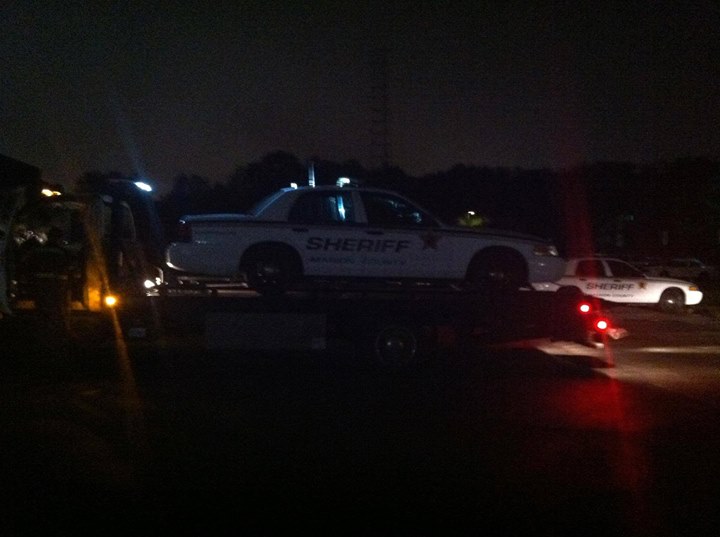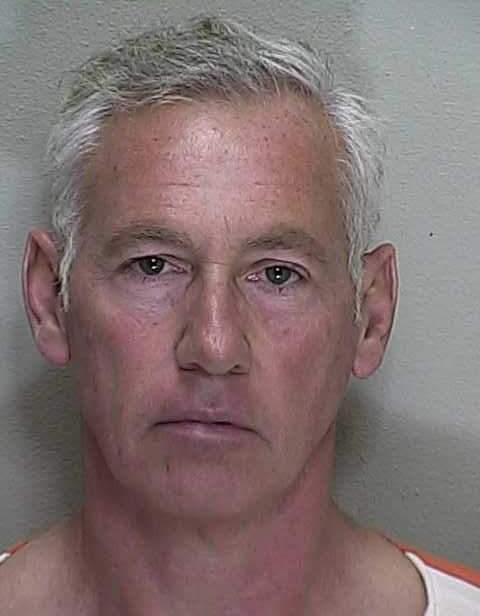
The U.S. Department of State warns U.S. citizens about the risk of traveling in Mexico due to threats to safety and security posed by Transnational Criminal Organizations (TCOs) in the country. U.S. citizens have been the target of violent crimes, such as kidnapping, carjacking, and robbery by TCOs in various Mexican states. For information on security conditions in specific regions of Mexico, which can vary, travelers should reference the state-by-state assessments further below.
This Travel Warning replaces the Travel Warning for Mexico, issued July 12, 2013, to update information about the security situation and to advise the public of additional restrictions on the travel of U.S. government (USG) personnel.
General Conditions:
Millions of U.S. citizens safely visit Mexico each year for study, tourism, and business, including more than 150,000 who cross the border every day. The Mexican government dedicates substantial resources to protect visitors to major tourist destinations, and there is no evidence that Transnational Criminal Organizations (TCOs) have targeted U.S. visitors or residents based on their nationality. Resort areas and tourist destinations in Mexico generally do not see the levels of drug-related violence and crime that are reported in the border region or in areas along major trafficking routes.
Nevertheless, U.S. travelers should be aware that the Mexican government has been engaged in an extensive effort to counter TCOs which engage in narcotics trafficking and other unlawful activities throughout Mexico. The TCOs themselves are engaged in a violent struggle to control drug trafficking routes and other criminal activity. Crime and violence are serious problems and can occur anywhere. U.S. citizens have fallen victim to criminal activity, including homicide, gun battles, kidnapping, carjacking and highway robbery. While most of those killed in narcotics-related violence have been members of TCOs, innocent persons have also been killed. The number of U.S. citizens reported to the Department of State as murdered in Mexico was 71 in 2012 and 81 in 2013.
Gun battles between rival TCOs or with Mexican authorities have taken place in towns and cities in many parts of Mexico, especially in the border region. Gun battles have occurred in broad daylight on streets and in other public venues, such as restaurants and clubs. During some of these incidents, U.S. citizens have been trapped and temporarily prevented from leaving the area. TCOs have used stolen cars, buses and trucks to create roadblocks on major thoroughfares, preventing the military and police from responding to criminal activity. The location and timing of future armed engagements is unpredictable. We recommend that you defer travel to the areas indicated in this Travel Warning and exercise extreme caution when traveling throughout the northern border region.
The number of kidnappings throughout Mexico is of particular concern and appears to be on the rise. According to statistics published by the Mexican Secretaria de Gobernacion (SEGOB), during the first 11 months of 2013 kidnappings nationwide increased 32 percent over the same period in 2012. While kidnappings can occur anywhere, according to SEGOB during this timeframe, the states with the highest numbers of kidnappings were Guerrero, Tamaulipas, Michoacán, Estado de Mexico, and Morelos. Additionally, according to a widely publicized study by the agency responsible for national statistics (INEGI, the National Institute of Statistics and Geography), Mexico suffered an estimated 105,682 kidnappings in 2012; only 1,317 were reported to the police. Police have been implicated in some of these incidents. Both local and expatriate communities have been victimized. Almost 90 kidnappings of U.S. citizens were reported to the U.S. Embassy and consulates in Mexico between April and November of 2013.
U.S. citizens are encouraged to lower their personal profiles and to avoid wearing conspicuous jewelry or clothing bearing logos of U.S. sports teams or military themed apparel which that may identify them as U.S. citizens. U.S. citizens are encouraged to maintain awareness of their surroundings and avoid situations in which they may be isolated.
Kidnappings in Mexico have included traditional, “express” and “virtual” kidnappings. Victims of traditional kidnappings are physically abducted and held captive until a ransom is paid for release. “Express” kidnappings are those in which a victim is abducted for a short time and forced to withdraw money, usually from an ATM, then released. A “virtual” kidnapping is an extortion by deception scheme wherein a victim is contacted by phone and convinced to isolate themselves from family and friends until a ransom is paid. The victim is coerced (by threat of violence) to remain isolated and to provide phone numbers for the victim’s family or loved ones. The victim’s family is then contacted and a ransom for the “kidnapped” extracted. Recently, some travelers to Mexico staying at hotels as guests have been targets of such “virtual” kidnapping schemes.
Carjacking and highway robbery are serious problems in many parts of the border region, and U.S. citizens have been murdered in such incidents. Most victims who complied with carjackers’ demands have reported that they were not physically harmed. Carjackers have shot at vehicles that have attempted to flee. Incidents have occurred during the day and at night, and carjackers have used a variety of techniques, including roadblocks, bumping/moving vehicles to force them to stop, and running vehicles off the road at high speeds. There are indications that criminals target newer and larger vehicles, especially dark-colored SUVs. However, even drivers of old sedans and buses coming from the United States have been targeted. While violent incidents can occur anywhere and at any time, they most frequently occur at night and on isolated roads. To reduce risk when traveling by road, we strongly urge you to travel between cities throughout Mexico only during daylight hours, to avoid isolated roads, and to use toll roads (“cuotas”) whenever possible.
The Mexican government has deployed federal police and military personnel throughout the country as part of its efforts to combat the TCOs. U.S. citizens traveling on Mexican roads and highways by car or bus may encounter government checkpoints, staffed by military or law enforcement personnel. TCOs have erected their own unauthorized checkpoints, at times wearing police and military uniforms, and killed or abducted motorists who have failed to stop at them. You should cooperate at all checkpoints.
The Department imposes restrictions on U.S. government employees’ travel in Mexico. Since July 2010, USG employees are prohibited from driving on non-official travel from the U.S.-Mexico border to or from the interior of Mexico or Central America. One exception is that personal travel by motor vehicle is permitted on Highway 15 toll road between Hermosillo and Nogales during daylight hours.
USG personnel and their families are prohibited from personal travel to all areas to which it is advised to “defer non-essential travel”. When travel for official purposes is essential, it is conducted with extensive security precautions. USG personnel and their families are allowed to travel for personal reasons to the areas where no advisory is in effect or where the advisory is to exercise caution. While the general public is not forbidden from visiting places categorized under “defer non-essential travel,” USG personnel will not be able to respond quickly to an emergency situation in those areas due to security precautions that must be taken by USG personnel to travel to those areas.
For more information on road safety and crime along Mexico’s roadways, see the Department of State’s Country Specific Information.
State-by-State Assessment:
Below is a state-by-state assessment of security conditions throughout Mexico. Travelers should be mindful that even if no advisories are in effect for a given state, crime and violence can occur anywhere. For general information about travel and other conditions in Mexico, see our Country Specific Information.
Aguascalientes: You should exercise caution when traveling to the areas of the state that border the state of Zacatecas, as TCO activity in that region continues. There is no advisory in effect for daytime travel to the areas of the state that do not border Zacatecas; however, intercity travel at night is not recommended.
Baja California: Tijuana, Ensenada and Mexicali are major cities/travel destinations in the state of Baja California – Exercise caution in the northern state of Baja California, particularly at night. There were 458 homicides in Tijuana from October 2012 through September 2013, compared with 324 for the same period a year earlier. Murders in Mexicali declined in the same period from 166 to 132. In the majority of these cases, the killings appeared to be targeted TCO assassinations. Turf battles between criminal groups resulted in assassinations in areas of Tijuana and Mexicali frequented by U.S. citizens. Shooting incidents, in which innocent bystanders have been injured, have occurred during daylight hours.
Baja California (Sur): Cabo San Lucas and La Paz are major cities/travel destinations in the state of Southern Baja California – No advisory is in effect.
Campeche: No advisory is in effect.
Chiapas: San Cristobal de las Casas is a major city/travel destination in Chiapas – No advisory is in effect.
Chihuahua: Ciudad Juarez, Chihuahua City, and Copper Canyon are major cities/travel destinations in Chihuahua – Exercise caution in traveling to the business and shopping districts in the northeast section of Ciudad Juarez and its major industrial parks, and the central downtown section and major industrial parks in Chihuahua City. U.S. citizens should defer non-essential travel to other areas of these cities and anywhere else in the state of Chihuahua and travel during daylight hours between cities. In Ciudad Juarez, personal travel by USG employees outside the north/central and northeast portion of the city near the Consulate General is restricted and private U.S. citizens should defer non-essential travel to those areas as well. In Chihuahua City, USG personnel and their family members are permitted to travel only to the central business districts and the city’s airport. Personal vehicular travel during daylight hours by USG personnel and family members is authorized between Ciudad Juarez and Chihuahua using the Highway 45 toll road. Although homicide rates in Ciudad Juarez have decreased markedly from a peak several years ago, the city still has one of the highest homicide rates in Mexico. Crime and violence remain serious problems throughout the state of Chihuahua, particularly in the southern portion of the state and in the Sierra Mountains, including Copper Canyon. U.S. citizens do not, however, appear to be targeted based on their nationality.
Coahuila: Defer non-essential travel to the state of Coahuila. The State of Coahuila continues to experience high rates of violent crimes and narcotics-related murders. TCOs continue to compete for territory and coveted border crossings to the United States. Violent crime, including murder, kidnapping, and armed carjacking, continues to be a major concern in the cities of Torreón, Saltillo, Piedras Negras, Ciudad Acuña, and Monclova. Of particular safety concern are casinos, sports books, or other gambling establishments and adult entertainment establishments, which USG personnel are not permitted to patronize.
Colima: Manzanillo is a major city/travel destination in Colima -Defer non-essential travel to the areas of the state of Colima that border the state of Michoacán, including the city of Tecoman. Exercise caution when travelling to other parts of the state, including Colima City and Manzanillo. The security situation along the Michoacán border continues to be the most unstable in the state with gun battles occurring between rival criminal groups and with Mexican authorities. Homicides throughout the state totaled 179 in 2012 and 147 for the first ten months of 2013, according to figures from the Colima state government.
Durango: Defer non-essential travel to the state of Durango, except the city of Durango where you should exercise caution. TCO violence and criminal activity along the highway are continuing security concerns. Several areas in the state continue to experience high rates of violence and remain volatile and unpredictable. The Mexican government deployed troops in March 2013 to quell TCO violence in the La Laguna area, which is comprised of the cities of Gomez Palacio and Lerdo in the state of Durango and the city of Torreon in the state of Coahuila. Of particular safety concern are casinos, sportsbooks, or other gambling establishments and adult entertainment establishments, which USG personnel are not permitted to patronize. USG personnel may not travel outside the city of Durango and must abide by a curfew of 1 a.m. to 6 a.m. within a secured venue.
Estado de Mexico: Toluca and Teotihuacan are major travel destinations in Estado de Mexico – Defer non-essential travel to the municipalities of Coacalco, Ecatepec, Nezahualcoyotl, La Paz, Valle del Chalco, Solidaridad, Chalco, and Ixtapaluca, which are eastern portions of the greater Mexico City metropolitan area, located just to the east of the Federal District of Mexico and Benito Juarez airport, unless traveling directly through the areas on major thoroughfares. These areas have seen high rates of crime and insecurity. You should also defer non-essential travel on any roads between Santa Marta in the southeast portion of the state and Huitzilac in the state of Morelos, including the Lagunas de Zempoala National Park and surrounding areas.
Guanajuato: San Miguel de Allende and Leon are major cities/travel destinations in Guanajuato – No advisory is in effect.
Guerrero: Acapulco, Ixtapa, Taxco and Zihuatanejo are major cities/travel destinations in Guerrero – Defer non-essential travel to the northwestern and southern portions of the state (the area west and south of the town of Arcelia on the border with Estado de Mexico in the north and west and south of the town of Tlapa near the border with Oaxaca), except for the cities of Acapulco, Zihuatanejo, and Ixtapa. In those cities, you should exercise caution and stay within tourist areas. You should also exercise caution and travel only during daylight hours on toll highway (“cuota”) 95D between Mexico City and Acapulco. Use the toll road towards the Playa Diamante area and avoid the highway running through the city of Acapulco for travel to and from Acapulco. In Acapulco, defer non-essential travel to areas further than 2 blocks inland of the Costera Miguel Aleman Boulevard, which parallels the popular beach areas. Lodging for USG personnel is limited to the “Hotel Zone” of Acapulco, beginning from the Hotel Avalon Excalibur Acapulco in the north and going south through Puerto Marquez including the Playa Diamante area. Any activity outside the Hotel Zone for USG personnel is limited to the coastal area from La Quebrada to the beginning of the Hotel Zone and only during daylight hours. In general, the popular tourist area of Diamante, just south of the city, has been less affected by violence. Flying into the coastal cities in southern Guerrero remains the preferred method of travel. You should defer non-essential travel by land between Acapulco and Zihuatanejo/Ixtapa, travel to Zihuatanejo/Ixtapa only by air, and exercise caution while in Zihuatanejo/Ixtapa. If traveling by land, use toll highway 200 between Acapulco and Zihuatanejo/Ixtapa. You should also exercise caution in the northern region of Guerrero (the area north of the town of Arcelia on the border with Estado de Mexico in the north and north and east of the town of Tlapa near the border with Oaxaca). The state of Guerrero was the most violent state in Mexico through the first 10 months of 2013, with 1,718 homicides and 205 reported cases of kidnapping, according to the Mexican Secretariado Ejecutivo Nacional de Seguridad Publica. Self-defense groups operate independently of the government in many areas of Guerrero. Armed members of these groups frequently maintain roadblocks, and although not considered hostile to foreigners or tourists, are suspicious of outsiders and should be considered volatile and unpredictable.
Hidalgo: No advisory is in effect.
Jalisco: Guadalajara, Puerto Vallarta, and Lake Chapala are major cities/travel destinations in Jalisco – Defer non-essential travel to areas of the state that borders the state of Michoacán and Zacatecas. The security situation along the Michoacán and Zacatecas borders continues to be unstable and gun battles between criminal groups and authorities occur. Concerns include roadblocks placed by individuals posing as police or military personnel and recent gun battles between rival TCOs involving automatic weapons. You should exercise caution in rural areas and when using secondary highways, particularly along the northern border of the state. Except for the areas of the state that border Michoacán, there is no advisory in effect for daytime travel within major population centers or major highways in the state of Jalisco. Intercity travel at night is not recommended. There is no recommendation against travel to Guadalajara and Puerto Vallarta. There is also no recommendation against travel on principal highways in Jalisco between Guadalajara including the portions that cross into the southern portions of the state of Nayarit.
Mexico City (also known as the Federal District): No advisory is in effect. See also the discussion in the section on Estado de Mexico for areas within the greater Mexico City metropolitan area.
Michoacán: Morelia is a major city/travel destination in Michoacán – Defer non-essential travel to the state of Michoacán except the cities of Morelia and Lázaro Cardenas where you should exercise caution. Flying into Morelia and Lázaro Cardenas is the recommended method of travel. Attacks on Mexican government officials, law enforcement and military personnel, and other incidents of TCO-related violence, have occurred throughout Michoacán. Due to criminal activity in Lazaro Cardenas, in late 2013 the Mexican military assumed direct control of the port. In many areas of the state, self-defense groups operate independently of the government. Armed members of the groups frequently maintain roadblocks, and although not considered hostile to foreigners or tourists, are suspicious of outsiders and should be considered volatile and unpredictable. Groups in Michoacán are reputed to be linked to TCOs.
Morelos: Cuernavaca is a major city/travel destination in Morelos – Exercise caution in the state of Morelos due to the unpredictable nature of TCO violence. You should also defer non-essential travel on any roads between Huitzilac in the northwest corner of the state and Santa Marta in the state of Mexico, including the Lagunas de Zempoala National Park and surrounding areas. On August 24, 2012 two USG employees were injured after being fired upon by Federal Police officers on a non-toll road north of Tres Marias, Morelos. Numerous incidents of narcotics-related violence have also occurred in the city of Cuernavaca.
Nayarit: Defer non-essential travel to areas of the state of Nayarit that border the states of Sinaloa or Durango, as well as all rural areas and secondary highways. Exercise caution when traveling to the cities of Tepic, Xalisco, or San Blas. There is no recommendation against travel to the Vallarta-Nayarit area in the southern portion of the state also known as the Riviera Nayarit or to principal highways in the southern portion of the state used to travel from Guadalajara to Puerto Vallarta.
Nuevo Leon: Monterrey is a major city/travel destination in Nuevo Leon -Defer non-essential travel to the state of Nuevo Leon, except the metropolitan area of Monterrey where you should exercise caution. Although the level of TCO violence and general insecurity in Monterrey has decreased within the last 12 months, sporadic gun battles continue to occur in the greater Monterrey area. Adult entertainment establishments and casinos continue to be targets of TCO activity. TCOs have kidnapped, and in some cases murdered U.S. citizens, even when ransom demands are met. TCOs have been known to attack prisons and police stations, and have engaged in public shootouts with the military and between themselves. Pedestrians and innocent bystanders have been killed in these incidents. As a result of a Department of State assessment of the overall security situation, the Consulate General in Monterrey is a partially unaccompanied post with no minor dependents of USG personnel permitted. USG personnel serving at the U.S. Consulate General in Monterrey and their dependents may not frequent casinos, sports books, or other gambling establishments. USG personnel and their dependents may not travel outside the San Pedro Garza Garcia municipal boundaries between 1 a.m. and 6 a.m., except for travel to the airport after 5 a.m.
Oaxaca: Oaxaca, Huatulco and Puerto Escondido are major cities/travel destinations in Oaxaca – No advisory is in effect.
Puebla: No advisory is in effect.
Queretaro: No advisory is in effect.
Quintana Roo: Cancun, Cozumel, Playa del Carmen, Riviera Maya and Tulum are major cities/travel destinations in Quintana Roo – No advisory is in effect.
San Luis Potosi: Defer non-essential travel to the state of San Luis Potosi, except the city of San Luis Potosi where you should exercise caution. Travel throughout the state remains a concern. TCO violence and criminal activity along highways are continuing security concerns. USG personnel may not frequent casinos, sports books, or other gambling establishments and adult entertainment establishments. USG personnel may not travel outside the City of San Luis Potosi and must abide by a curfew of 1 a.m. to 6 a.m. within a secured venue.
Sinaloa: Mazatlan is a major city/travel destination in Sinaloa – Defer non-essential travel to the state of Sinaloa except the city of Mazatlan where you should exercise caution, particularly late at night and in the early morning. One of Mexico’s most powerful TCOs is based in the state of Sinaloa, and violent crime rates remain high in many parts of the state. Travel off the toll roads in remote areas of Sinaloa is especially dangerous and should be avoided. We recommend that any travel in Mazatlan be limited to Zona Dorada and the historic town center, as well as direct routes to/from these locations and the airport.
Sonora: Nogales, Puerto Peñasco, Hermosillo, and San Carlos are major cities/travel destinations in Sonora – Sonora is a key region in the international drug and human trafficking trades, and can be extremely dangerous for travelers. Travelers throughout Sonora are encouraged to limit travel to main roads during daylight hours. The region west of Nogales, east of Sonoyta, and from Caborca north, including the towns of Saric, Tubutama and Altar, and the eastern edge of Sonora bordering Chihuahua, are known centers of illegal activity and non-essential travel between these cities should be avoided. Travelers should also defer non-essential travel to the eastern edge of the State of Sonora which borders the State of Chihuahua (all points along that border east of the northern city of Agua Prieta and the southern town of Alamos), and defer non-essential travel within the city of Ciudad Obregon and south of the city of Navojoa. You should exercise caution while transiting Vicam in southern Sonora due to a roadblock instituted by local indigenous and environmental groups. In December 2013, a gun battle involving Mexican authorities and TCOs occurred in Puerto Penasco. U.S. citizens visiting Puerto Peñasco should remain vigilant, exercise caution and use the Lukeville, Arizona/Sonoyta, Sonora border crossing, in order to limit driving through Mexico.
Tabasco: Villahermosa is a major city/travel destination in Tabasco – No advisory is in effect.
Tamaulipas: Matamoros, Nuevo Laredo, Reynosa, and Tampico are major cities/travel destinations in Tamaulipas – Defer non-essential travel to the state of Tamaulipas. All USG employees are prohibited from personal travel on Tamaulipas highways outside of Matamoros, Reynosa, and Nuevo Laredo due to the tenuous security situation. In Matamoros, USG employees are subject to further movement restrictions between midnight and 6 a.m. USG employees may not frequent casinos and adult entertainment establishments. Matamoros, Reynosa, Nuevo Laredo, and Ciudad Victoria have experienced grenade attacks in the past year, as well as numerous reported gun battles. Violent gun battles between rival TCO elements and/or the Mexican military can occur in all parts of the region, and at all times of the day. The kidnapping rate for Tamaulipas, the highest for all states in Mexico, more than doubled in 2012 over 2011, and the number of U.S. citizens reported to the consulate as kidnapped in 2013 increased by 75% over 2012. In February 2013, four masked and armed individuals attempted to kidnap a USG employee in Matamoros during daylight hours. All travelers should be aware of the risks posed by armed robbery and carjacking on state highways throughout Tamaulipas, particularly on highways and roads outside of urban areas along the northern border. Traveling outside of cities after dark is particularly dangerous. While no highway routes through Tamaulipas are considered safe, the highways between Matamoros-Tampico, Monterrey-Nuevo Laredo, and Matamoros-Ciudad Victoria are particularly prone to criminal activity. In the past year there have been several instances of U.S. citizens being kidnapped from hotels while attending family or social events (e.g. weddings and funerals). In at least one incident, a member of the traveling party was summoned to the front desk by hotel staff whereupon he was kidnapped. Travelers should consider selecting hotels with adequate security and reputability as well as exercising caution when responding to phone calls or knocks at the door while resident in a hotel. Travelers should stay low-key and refrain from flashing around cash or wearing expensive jewelry.
Tlaxcala: No advisory is in effect.
Veracruz: Exercise caution when traveling in the state of Veracruz. The state of Veracruz continues to experience violence among rival criminal organizations. Mexican federal security forces continue to assist state and local security forces in providing security and combating organized crime.
Yucatan: Merida and Chichen Itza are major cities/travel destinations in Yucatan – No advisory is in effect.
Zacatecas: Defer non-essential travel to areas of Zacatecas near the border with other Mexican states. Exercise caution in the interior of the state including the city of Zacatecas. The regions bordering Durango and Coahuila as well as the cities of Fresnillo and Fresnillo-Sombrete and surrounding area are particularly dangerous. Robberies, carjackings, and TCO activity remain a concern. Gun battles between criminal groups and authorities have occurred in the area of the state bordering the state of Jalisco. The city of Fresnillo, the area extending northwest from Fresnillo through Durango and into Chihuahua is considered dangerous. Extreme caution should be taken when traveling in the remainder of the state. Of particular safety concern are casinos, sports books, or other gambling establishments and adult entertainment establishments, which USG personnel may not frequent. USG personnel may not travel outside the City of Zacatecas after dark and must abide by a curfew of 1 a.m. to 6 a.m. within a secured venue.




 West Palm Beach, Florida — Palm Beach County Sheriff’s Deputies have arrested Greenacres Police Officer, Ervans Saintclair, 37, for intentionally having unprotected sex with multiple females while being infected with HIV.
West Palm Beach, Florida — Palm Beach County Sheriff’s Deputies have arrested Greenacres Police Officer, Ervans Saintclair, 37, for intentionally having unprotected sex with multiple females while being infected with HIV.





























